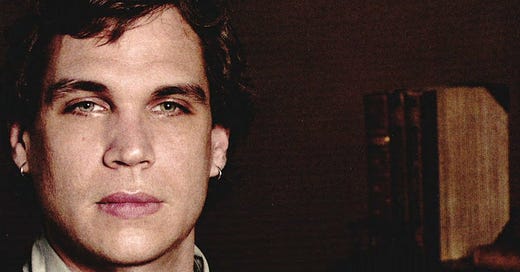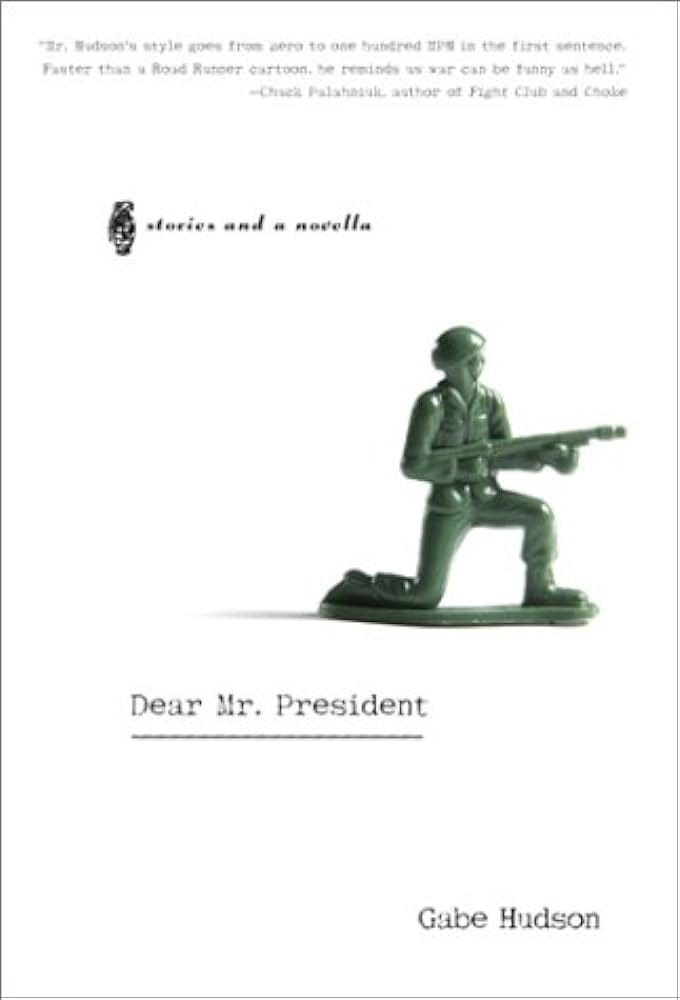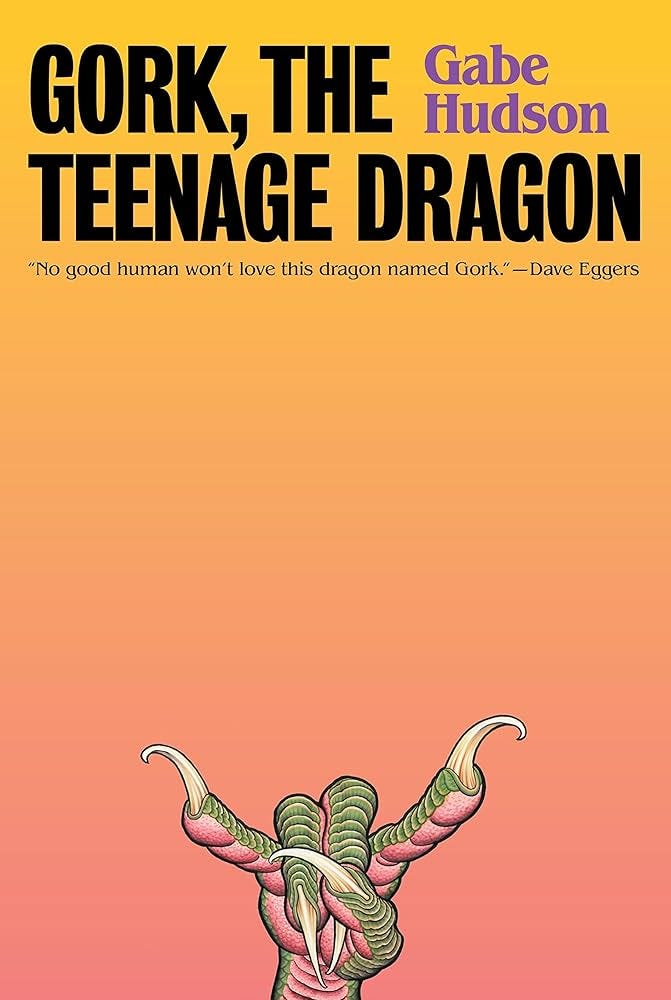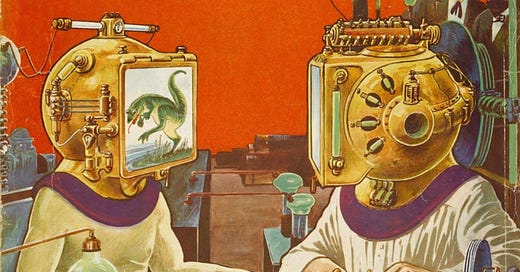
A few days ago I heard the sad and shocking news that
had passed away at the young age of 52. If you pay attention to literary social media, you’ve probably seen the news too. He is being mourned widely and deeply. Gabe was a sharp writer and a big-hearted literary booster. Whenever I saw him, he was always overflowing with energy and ideas. He’s going to be sorely missed. His memorial service will be streamed live Thursday.By random chance, Gabe’s interview with me for his podcast,
, is the last thing he posted on social media and his Substack. I know he’d interviewed other writers after our conversation and hadn’t finished editing them. I was not among Gabe’s closest friends. But the last thing we talked about was me writing a Substack post on our interview and it feels appropriate to instead write a little about him here and why he touched so many people in the literary world.I first met Gabe Hudson when
asked me to profile him for Rolling Stone in 2017 when his second book, Gork, the Teenage Dragon, was coming out. He treated me like an old friend the second we met. It was clear Gabe had always loved literature. Talking about books energized him. After serving in the marines—Gabe was always passionate about the writing of veterans—Gabe enrolled in Brown’s MFA and got involved with McSweeney’s in the early days of that now iconic literary magazine. (, who worked with him at McSweeney’s, has a very nice tribute.) Gabe published a great, satirical collection Dear Mr. President that used humor and surrealism to critique America’s wars. It landed him on Granta’s 2007 list of “Best Young American Novelists.” It took him fifteen years go write the next book, the comedic and weird fantasy novel Gork, the Teenage Dragon.I reconnected with Gabe a couple years later when we were both teaching our first classes at Columbia’s MFA program. His course was titled “Storytelling Against Fascism: Weird Fiction as Political Tool,” which I think sums up his personality. As my class was a speculative fiction class, we had a few students in common so I know his class was beloved. Gabe’s dedication to his students was very real. I remember he said he refused to make a syllabus until he’d talked to the students about their goals and interests so that he could tailor the class entirely to their needs and desires. He “couldn’t imagine teaching a class any other way.”
I called Gabe a big-hearted literary booster before and that’s really how I think of him. I remember going to a bar when we started our Columbia classes and chatting for hours. Gabe didn’t really know me back then and I remember I was rather depressed about the state of my novel and the prospects of selling it. Gabe was effusive. Almost anything I said about the novel, he’d say, “See, I love that!” with exclamation point very much included. And the thing was, you could tell he meant it.
Perhaps another way to say it is that Gabe was a consummate literary citizen. That’s a phrase that is often a lame cliche meaning little beyond the person hobnobbing with the right people. But in Gabe’s case I think it is apt. Gabe loved literature. He loved writers. He especially loved writers doing their own weird thing with humor and heart. He was at home boosting, cheering on, promoting, and championing writers. You can see that clearly from his social media presence and his podcast
, where he interviewed all sorts of writers about their work, social media, politics, and any other topic that came to mind.When Gabe wrote me to be on his podcast, it was with his typical effusiveness. Normally a podcast is a rather dry forty minutes of prefab questions. But with Gabe, he tailored all his interviews to his guest’s actual work and interests just like he tailored his classes to his students. We talked for more than two hours bouncing around topics from surrealism to punk rock to publishing (the podcast was edited down) and frankly could have kept talking for hours more. One thing I remember is how excited he was about his plans and the future. He was thrilled to connect on such a personal level with people—writers and listeners—through his podcast.
Talking to him left me inspired. I wanted to go out and write, have big plans, make things. I know he inspired many others in the same way.
His absence will be felt in the literary world. His words and memory will live on. RIP.


















Your interview with him was my first experience of him. He made an immediate impression and I’m very sorry to hear this news. But somehow his encouraging attitude continues to encourage me, even though my interaction with him was just a sentence or two in a comment section.
Maybe we can try to keep him alive, in a sense, by trying to be more like him.
What a beautiful tribute. Thanks for sharing.